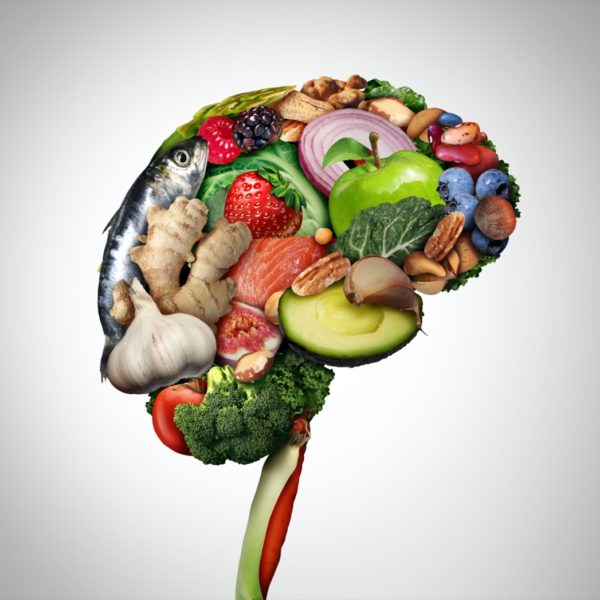Topics We Can Cover Together
When you meet with our Registered Dietitian, together you will explore topics such as the Gut-brain connection, choosing foods to help support memory, appetite regulation, emotional health, sleep and hydration and the impact of physical activity on mental and physical health.

You are What you Eat
What are the foundations of good nutrition? Though everyone eats, many people feel confused about what and how much to eat. Let’s walk this path together so you can feel confident in your food choices.

Food for Thought
What impacts our memory? Stress, exercise, body weight and food choices to name a few. Specific nutrients can help support memory like antioxidant rich fruits, vegetables, whole grains, legumes, seafood rich in omega 3 fatty acids, as well as nuts and seeds.

Hunger Hormones
What signals are being sent to and from your brain to help you stay full and/or tell you that you’re hungry? Your brain and other internal signaling systems regulate your appetite. Because we know that extra body weight has a negative impact on brain function, including memory and executive function, understanding these signals is very important to maintaining or achieving a healthy body weight.

Food and Mood
What is the relationship between our emotional states and what we eat? We have an emotional connection with food that goes beyond correlating the smell of home cooked meals to home. Certain moods might create an impulse to eat or overeat, but inversely, types of food we consume can also impact mood.

Brains and “Butterflies”
Have you ever had “butterflies in your stomach”? Perhaps you feel this way prior to giving a speech or when meeting someone new. Our gut is affectionately known as our second brain because it communicates messages to and from our brain via the vagus nerve. Therefore, diet directly impacts brain health. It is important to know how to create optimal gut health so that you can achieve the most positive impact on your brain.

Catching some Z’s
Sleep can be illusive for some, and for others be only mildly problematic. We know sleep impacts our emotional health and our immune system. Sleep is a complex and convoluted issue, but discussing contributing factors–including the impact of nutrients, sleep routine, physical activity and exposure to light–can help you catch those Z’s you’ve been missing out on.

Keeping Afloat
One of the most overlooked and most important pieces of the puzzle lies in how we hydrate. If we want our brain and body to function well, we must keep it hydrated. Water serves as a conductor of the electrical messages throughout our body and brain. It also helps to move toxic byproducts (created by normal chemical reactions in the brain) to the bloodstream for elimination. Dehydration is associated with impairment in cognitive function and performance especially related to activities involving attention and executive function.

Bugs and Guts
The microbiome, found in the gut otherwise known as the intestines, is home to a robust collection of trillions of microorganisms like bacteria, viruses, fungi, archaea and eukaryotes; research in this area is growing exponentially. These microorganisms are responsible for helping to digest food, synthesize vitamins, support our immune system and make neurotransmitters like serotonin. They have also been linked to metabolic function such as how we digest and metabolize food leading to obesity.

Keep it Moving
We all know that physical activity is important for maintaining a healthy body weight and overall health, but did you know that it also directly impacts brain health? Studies show that physical exercise helps delay onset of cognitive decline and dementia while improving scores on memory and thinking tests. It is also well established that exercise reduces anxiety, depression, and negative mood, and significantly improves self-esteem and sleep.
We would love to talk with you about how nutrition impacts your health! You can schedule an appointment with our registered dietitian here.